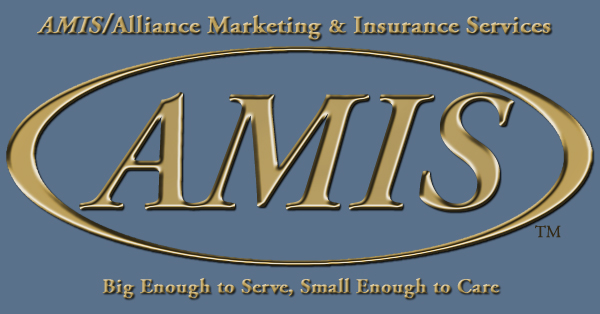






Charter schools are nonsectarian public schools of choice that operate with freedom from many of the regulations that apply to traditional public schools. The "charter" establishing each such school is a performance contract detailing the school's mission, program, goals, students served, methods of assessment, and ways to measure success. The length of time for which charters are granted varies, but most are granted for 3-5 years. At the end of the term, the entity granting the charter may renew the school's contract. Charter schools are accountable to their sponsor-- usually a state or local school board-- to produce positive academic results and adhere to the charter contract. The basic concept of charter schools is that they exercise increased autonomy in return for this accountability. They are accountable for both academic results and fiscal practices to several groups: the sponsor that grants them, the parents who choose them, and the public that funds them.

Private Schools, or independent schools, are schools not administered by local, state, or national government, which retain the right to select their student body and are funded in whole or in part by charging their students tuition rather than with public (state) funds. In the United Kingdom and some other Commonwealth countries the use of the term is generally restricted to primary and secondary educational levels: it is almost never used of universities or other tertiary institutions. Private education in North America covers the whole gamut of educational activity. Private schools range from pre-school to tertiary level institutions. Annual tuition at K-12 schools range from nothing at tuition-free schools to more than $40,000 at several boarding schools.
The secondary level includes schools offering grades 7 through 12 and grade 13. This category includes preparatory schools or "prep schools", boarding schools and day schools. Tuition at private secondary schools varies from school to school and depends on many factors, including the location of the school, the willingness of parents to pay, peer tuition, and the endowment. High tuition, schools claim, is used to pay higher salaries for the best teachers, and also used to provide enriched learning environments including a low student to teacher ratio, small class sizes and services such as libraries, science laboratories, and computers. Some private schools are boarding schools. Some military schools are privately owned or operated as well.
Religiously affiliated or denominational schools form a distinct category of private schools. Some such schools teach religious lessons together with the usual academic subjects to instill their particular faith's beliefs and traditions in the students who attend

The most visible difference between American public and private universities is the cost of tuition, which is much higher at private universities. In general, private tuition is approximately nine to ten times higher than public tuition. This is because private universities rely directly on student and alumni funding in order to operate. Unlike public universities, private universities receive no direct subsidy from the state in which the school is located. Public universities are also much easier for students to gain admission to, especially if the student is a resident of the state in which the university is located. In some instances, public universities have programs that automatically accept transfer students that have completed a certain number of outside credits in a different state college.
Like privatized junior high and high schools, private universities generally have smaller class sizes, and more prestige than do public universities. Students generally build stronger, more personal relationships with their professors and instructors, as there are special programs designed to increase communication and dialogue between the two. It is not uncommon for a university to arrange for professors to dine, correspond, and interact with students on a personal, friendly level. Private universities also have a significantly higher amount of extra-curricular activities and programs for students to participate in, which can develop a stronger sense of community.
Private universities, although more prestigious and well-respected, are not automatically superior to public universities. Harvard or Stanford may not be the ideal choice for every student, even if their grades qualify them for admittance. The University of Washington, a university located in Seattle, Washington has one of the country's most prestigious medical schools, despite the fact that it is a public, and not a private, university. On the other hand, look at Azusa Pacific University which was ranked as one of the nation's best colleges of 2008 by U.S.News and World Report. Located near Los Angeles in Southern California, APU is a Christian University offering undergraduate, master's, doctoral, and degree completion programs, both on campus and online. The schools and colleges at Azusa Pacific University are well-known for excellence in higher education among top Christian colleges.

Day care or child care is care of a child during the day by a person other than the child's parents or legal guardians, typically someone outside the child's immediate family. The service is known as child care in the United Kingdom and Australia and day care in North America. Child care or day care is provided in nurseries or crèches or by child minders caring for children in their own homes.
Babysitting is the occasional temporary care of a child during the absence of his or her parents. Child care or day care is ongoing care during specific periods, such as the parents' time at work. Child care can also take on a more formal structure, with education, child development, discipline and even preschool falling into the fold of services.
Some child minders care for children from several families at the same time, either in their own home or in a specialized child care facility. Some employers offer nursery provision for their employees at or near the place of employment.
The day care industry is a continuum from personal parental care to large, regulated institutions. The vast majority of childcare is still performed by the parents, in-house nanny or through informal arrangements with relatives, neighbors or friends. For example, in Canada, among two parent families with at least one working parent, 62% of parents handle the childcare themselves, 32% have other in-home care (nannies, relatives, neighbors or friends) and only 6.5% use a formal day care center.
|
|
Application Information - Request a Quote
Please click the button to complete the PDF application for this insurance quote. If you have any questions, please call or email the person indicated in the contact area for this coverage.
NOTE: All applications must be underwritten and a quotation will be issued subject to underwriting guidelines. THE QUOTE DOES NOT BIND COVERAGE.
Overall Liability Application for all Schools and Colleges - PDF Form
Non-Profit Comprehensive Questionnaire - PDF Form
School Supplemental Questionnaire - PDF Form
| Instructions: PDF Application Forms |
To protect your privacy, please DO NOT EMAIL PDF application forms to us.
|
 Need the Free Adobe Reader for those PDF files, or do you want to get the latest version? Get it here: Adobe Reader Download.
Need the Free Adobe Reader for those PDF files, or do you want to get the latest version? Get it here: Adobe Reader Download.




